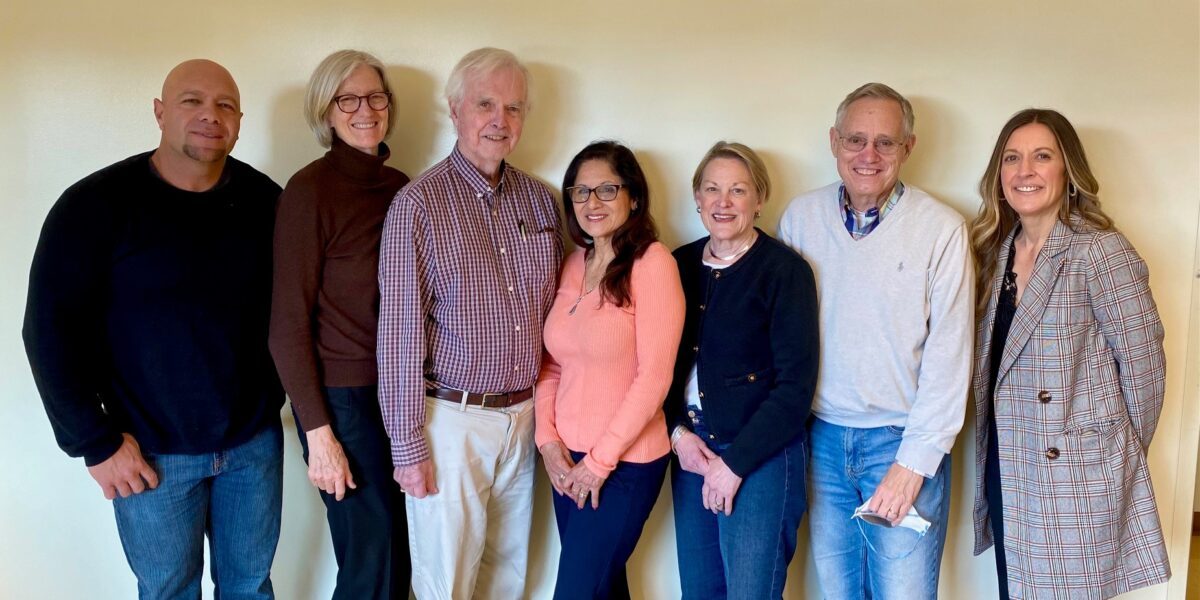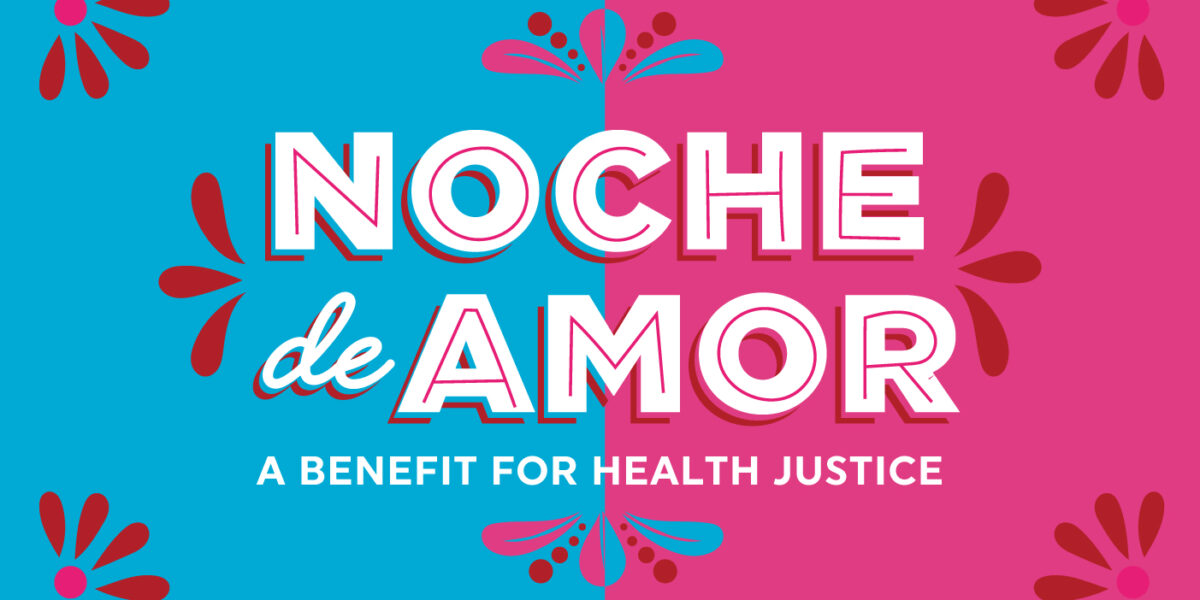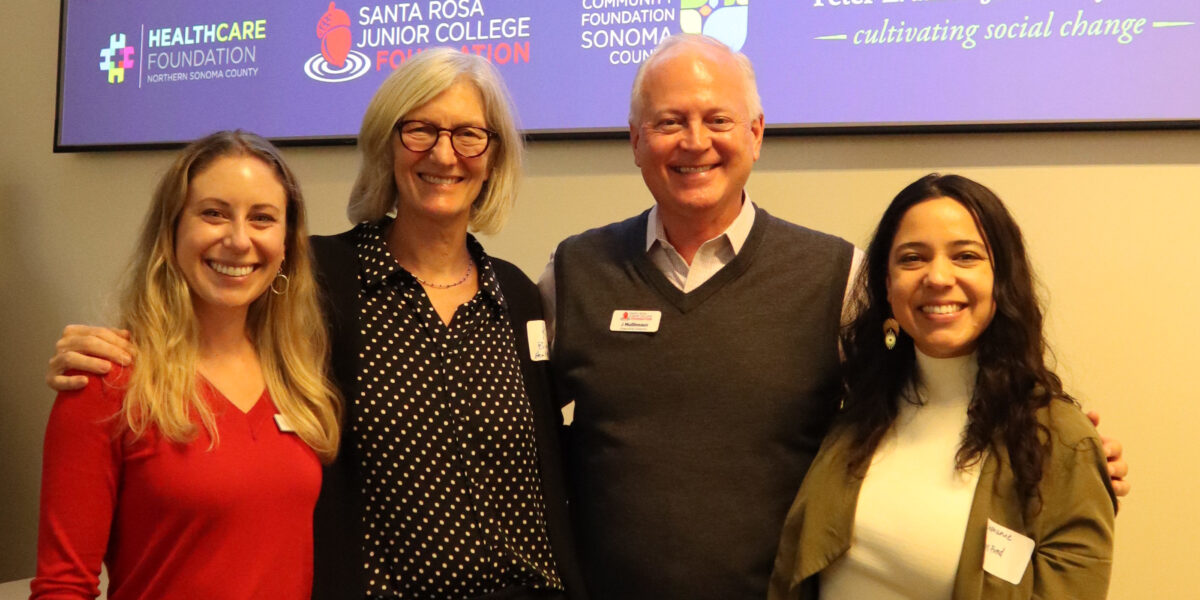
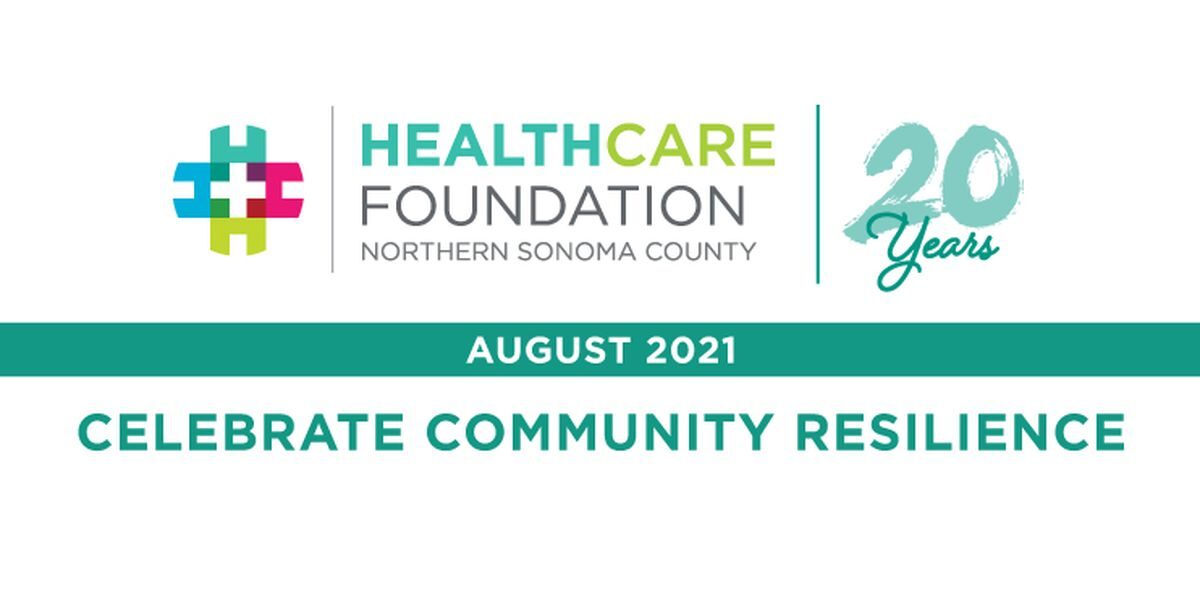
Celebrate Community Resilience
This month, we acknowledge the sponsors of our upcoming summer gala, highlight Montserrat Archila's work with our strategic planning process, and introduce you to Mental Health Talent Pipeline awardee Nallely Ramirez.
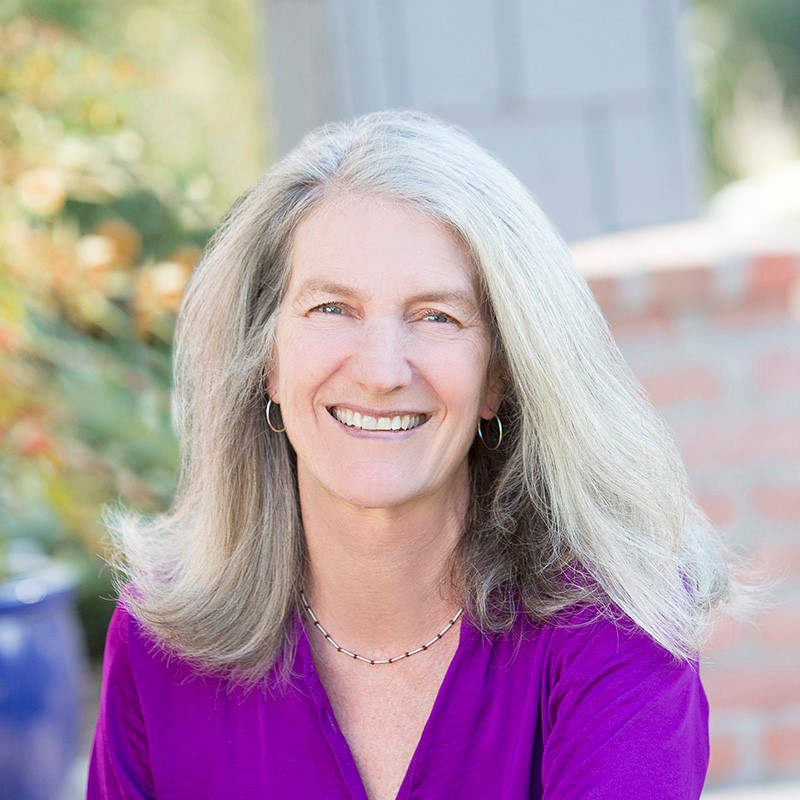
Dear Friends,
What a difference a month can make! In recent weeks—as many doors opened again, masks came off, and long-anticipated reunions took place—we were powerfully reminded of just how much meaning and comfort we derive from social contact with one another.
A Delta variant–fueled rise in cases now has us adapting once more, doing what’s necessary to keep ourselves, our loved ones and our fellow community members safe. But let’s remember that we are in a much better place than we were last year. Our county’s nearly 72% full vaccination rate is impressive. This month, I invite you to join me in celebrating our community’s resilience.
We at Healthcare Foundation are truly inspired by our amazing community, and are excited to see many of you later this month, with Covid safety protocols firmly in place, at a joyous CELEBRATE OUR FUTURE, the Healthcare Foundation’s 20th anniversary gala. All persons in attendance, including sponsors, guests, vendors and staff, will be required to provide proof of full vaccination. If you are attending, thank you in advance for emailing a picture of your vaccination card to info@healthcarefoundation.net by August 20th.
Without underestimating the challenges of our time, we have a lot to celebrate. Over the last 20 years, with your help, we’ve forged a diverse network of cooperation and support, and a shared vision of health equity for all people in northern Sonoma County. We’ve never been further along on this journey than we are right now, thanks to the solutions that come from working closely with community partners and the people they serve. You can read more about this approach below in our Community Partner Spotlight on Montserrat Archila.
As Montserrat eloquently attests, we generate the most effective solutions when we recognize the assets we have in one another. This is a driving inspiration behind our Mental Health Talent Pipeline Project. I invite you to read our profile below of Nallely Ramirez, one of our latest, remarkable scholarship awardees.
Finally, we cannot help sharing with you some of the incredible responses we’ve received from our gala sponsors. I know you’ll be equally impressed by these dedicated individuals and organizations who are so deeply committed to the health of our resilient community. None of the last 20 years, or the next, would be possible without the generosity, passion, and vision of our donor community and we thank you with all our heart.
With appreciation for all you do,

Kim Bender
Executive Director
Spotlight on Our Sponsors
Visionary Sponsors
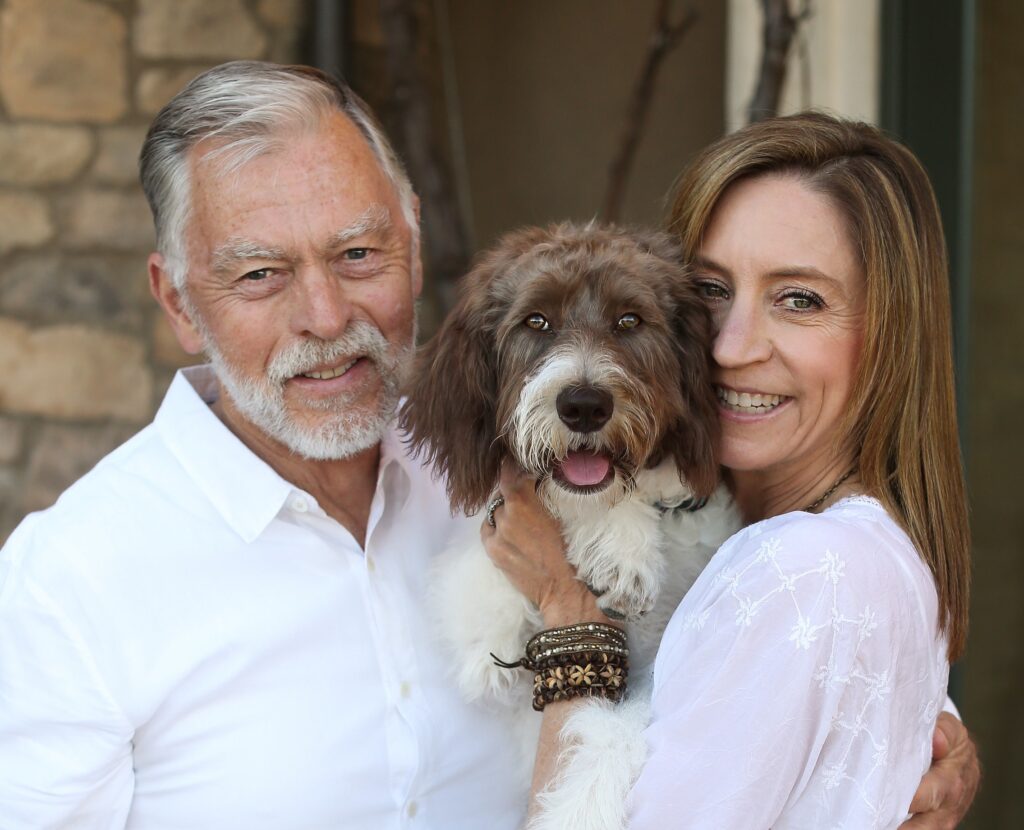
Barbara Grasseschi and Tony Crabb
“We are proud to support the Healthcare Foundation’s vision of eliminating health inequities in northern Sonoma County. The health implications of racism are real. We recognize the resulting disparities, and how they affect who gets sick and who doesn’t. We are working hard to address these realities by joining forces with other nonprofits who share our values to promote wellness in underserved communities.”
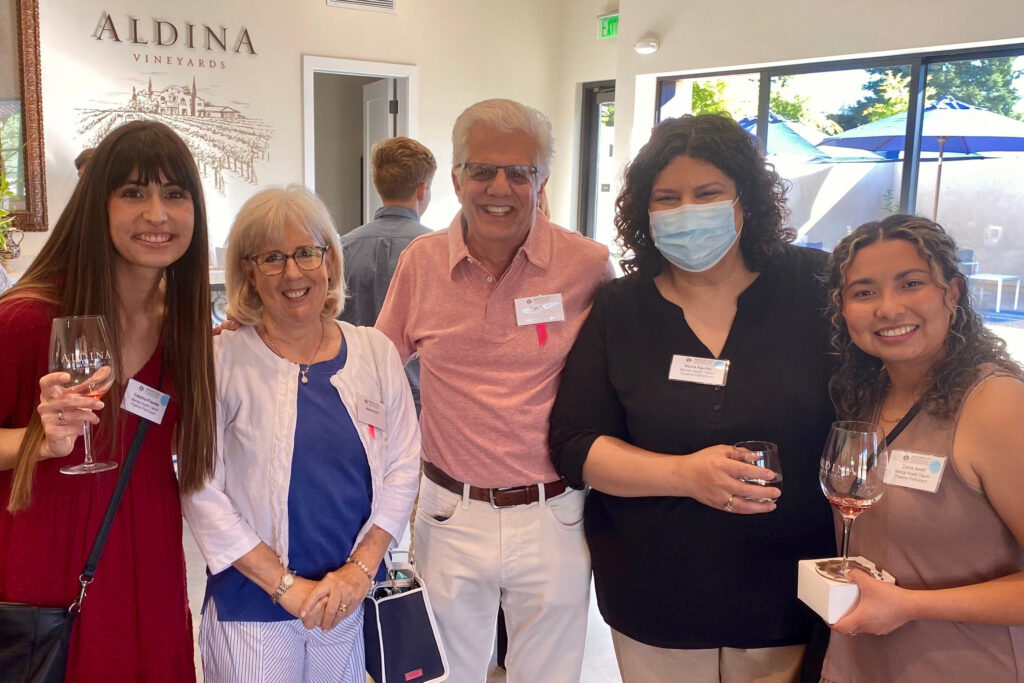
Marc and Jeanie Kahn
“We are so gratified to be part of the Healthcare Foundation’s focus on providing much-needed mental health care to the most vulnerable and least-served citizens of our community. We need to ensure that there are no barriers to healthcare access.”

Douglas and Juli Muhleman
“We are very happy to contribute to support the Healthcare Foundation because of its outreach to a wide diversity of people in our community, closing the healthcare gap and bringing quality healthcare and healthy outcomes to those in need. We are grateful for the hard work that they do to generally improve the quality of life for all of us in northern Sonoma County!”
Champion Sponsors
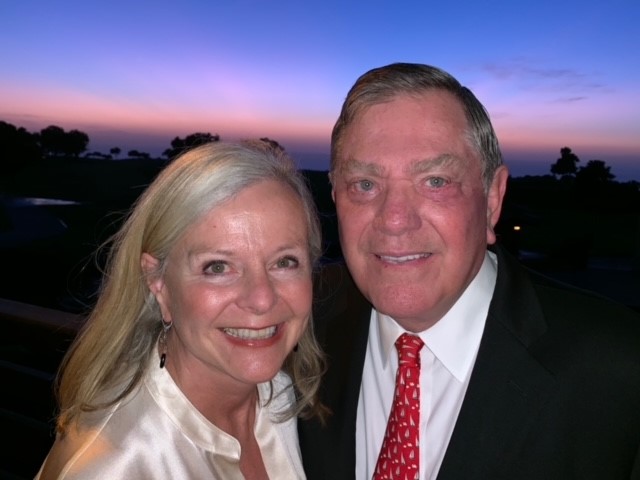
Terry Atkinson and Kathy Taylor
“We appreciate the way the Healthcare Foundation collaborates with other local nonprofits to improve access to healthcare for folks outside the system. Covid has made it clear that organizations can’t work in silos anymore if we want to be effective. It takes a village, and it takes leadership.”
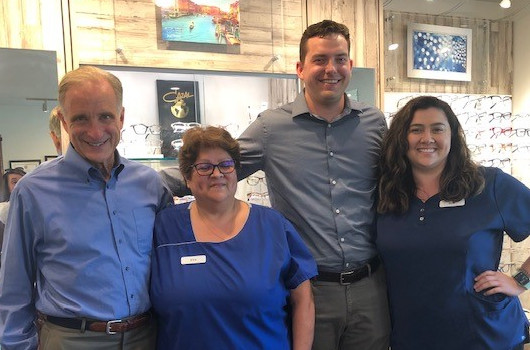
Gary Barth, M.D. of Barth Vision and Optical
“The fact that you identify and vet the providers that are making a difference and enhance their ability to focus on what they do well, whether it’s early childhood development, or Alliance, or mental health, or training young mental health professionals to get degrees and stay in the community. The fact that you look for people who are both bilingual and bicultural and provide them support… Those are all legacy, foundational efforts. When you train someone, especially if they stay in the county, it’s fantastic.”
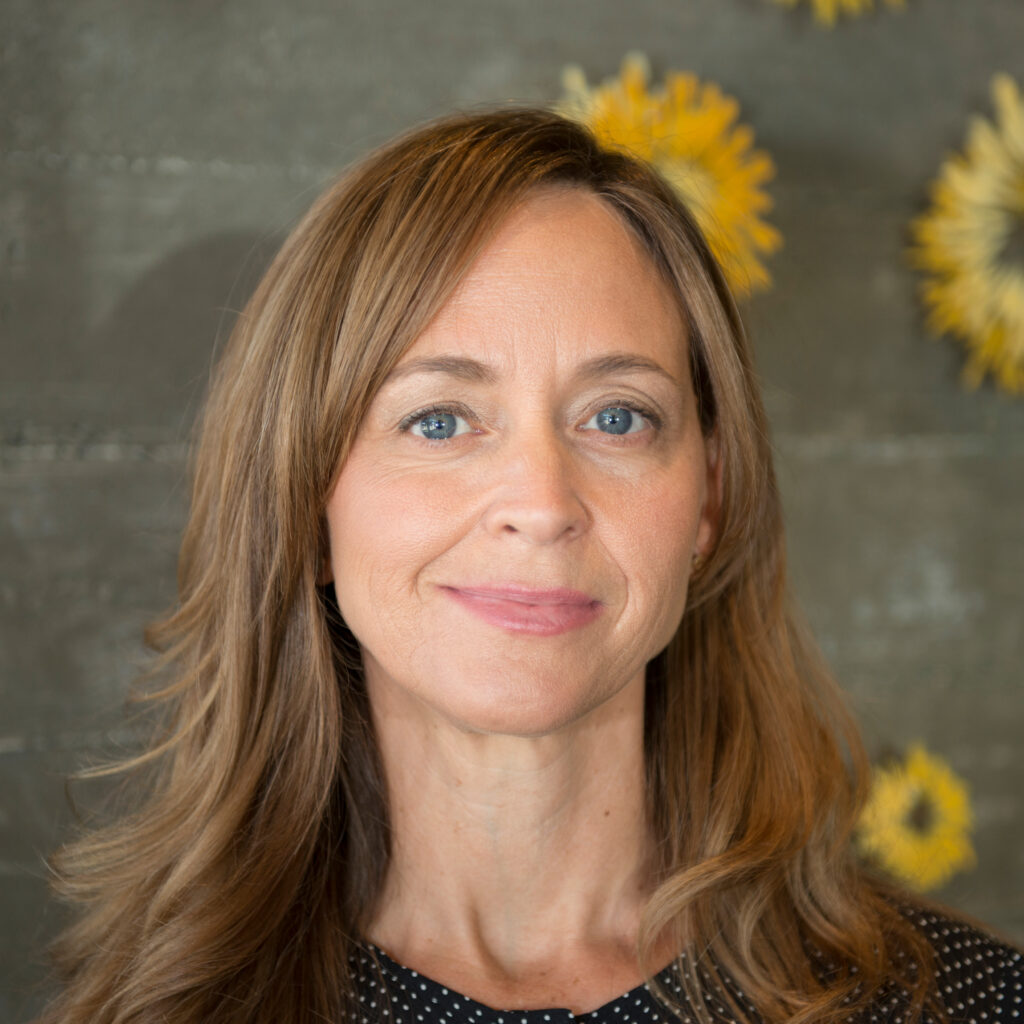
Circe Sher, owner, Hotel Healdsburg
“Our support is about the longstanding good work that the Healthcare Foundation has been doing for 20 years. As a gala sponsor and year-round Healthcare Hero Community Partner, we support the urgent health and mental health needs in our community. I have witnessed the stress local hospitality workers have been under with the uncertainty in the industry followed by a rush to return to business. The Healthcare Foundation has made critical investments in increasing the number of bilingual, bicultural mental health providers. Making mental health services available is crucial right now in support of our community.”
We’d also like to offer our most sincere appreciation to Champion Sponsors
Bruce Golden and Michelle Mercer
and

Community Partner Spotlight: Montserrat Archila
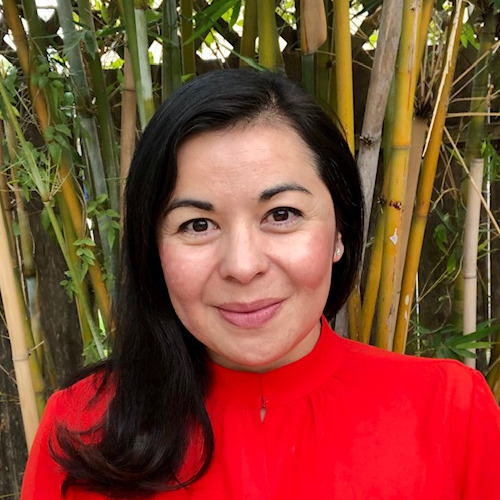
When it comes to the Healthcare Foundation’s ability to successfully address the most pressing needs of our region in matters of health and well-being, especially for our most vulnerable residents, community input and collaboration are essential. To this end, we were extremely fortunate to have Montserrat Archila join our strategic planning effort as a valued community partner.
As the School-Based Behavioral Health Lead at Providence St. Joseph’s Community Health Investment Department, Montserrat has 15 years of experience working in the community. She currently is also completing a certificate in indoor architecture and design with an eye to the relation between the built environment and public health. Her expertise, insights and enthusiasm are invaluable, and we couldn’t be more grateful to her. We recently asked her about her role in the strategic planning process, her work more generally, and the importance of collaborative approaches to community health. The following excerpts from our conversation in July have been lightly edited for clarity.
Can you tell us about the community listening sessions you helped bring into the strategic planning process?
Executive Director Kim Bender and I convened several partners in north county to understand what the needs are, what they’re hearing from the people they’re serving. We brought a lot of cross-sector agencies together. We made sure we had someone representative of our shelter-less population, our Latinx population, someone [focused on] mental health, and so on. Our plan was to engage with the partners and to ask how we can best learn from the folks they serve. Can we create a survey? Can we join existing meetings to ask these questions? That was our follow up. I went to the La Familia Sana board meeting, for example. I know Kim went to a Comite at Corazón Healdsburg. Other organizations did one-on-one conversations with constituents, and we gathered that information, too, and brought it back to the strategic planning committee.
“Too often, we’re looking at community data and that’s kind of where it stops. The information comes back, and people in some very small room make some decisions. Maybe it doesn’t do as well as they thought it was going to, maybe it falls flat. We never go back to the community to say, this is what we think might help or be a solution, did we get it right.”
What were the themes or issues that came up?
Mental health services came up quite a bit, or just mental health in general—resources, training. Transportation was another. Access to care that is culturally appropriate, the lack of which is another huge barrier. Also, education around public charge and why people are not accessing services. At the listening session that I did with La Familia Sana—this is with a group of farmworkers who are mainly working in the Cloverdale area, so at the very top of our county—by far the top issue was mental health. They were so open in sharing the struggles of their children, their personal struggles, and their frustration about the lack of services in their area. I had a dad confess to me, “I don’t even know where to start to get help for my daughter.” He said he was feeling frustrated and alone in this process. Luckily, he met somebody in Cloverdale, a therapist, who was helping him. But he described how he had had no starting point for where to go—or even what her needs are, because he didn’t understand what was happening.
Can you tell me about the “self-healing communities” model you use in your work?
The “self-healing communities” model is a framework for how we engage with our community to develop strong networks that promote collaboration across sectors. It also looks at how we can nurture local leadership and incorporate it in our larger systems of care. [It’s about] who gets to sit at those tables. How are we helping local leadership and the people in charge [in healthcare systems] to come together? We also look at data to focus our efforts, to see what has worked and what hasn’t. Part of self-healing is to make these things visible. Too often, we’re looking at community data and that’s kind of where it stops. The information comes back, and people in some very small room make some decisions. Maybe it doesn’t do as well as they thought it was going to, maybe it falls flat. We never go back to the community to say, this is what we think might help or be a solution, did we get it right? They might say, “No. Let us tell you what ideas we already bring, certain things we’re already doing.” It’s about that perpetual engagement, doing this hand-in-hand with the community always.
“We as humans are all assets in this place, whether it’s Sonoma County or anywhere else. I know we [tend to] talk “deficit language”—there’s a certain percentage of this, or this isn’t going well. I’m usually the person asking, ‘What is going well? What is working? What assets do we have in the community.”
What’s the best part of your job? And is there anything in your background that you see as having influenced the work that you do?
The favorite part of my job, hands down, is to be in community. I wouldn’t have it any other way. I love hearing the stories and being with people. I’m always so humbled by the openness that people have in sharing very personal stories about their struggles.
As for my background, I was born in El Salvador and came to this country at a very young age. There are certain things that become apparent when you’re not from a place—how you can access things, whether it’s in your language or not, what’s available to you and what isn’t. Even the messages that you get in school about your own identity. I feel all of that has pushed me to be an advocate for the community. I think about the assets that people bring. We as a family come here and we bring something. We as humans are all assets in this place, whether it’s Sonoma County or anywhere else. I know we [tend to] talk “deficit language”—there’s a certain percentage of this, or this isn’t going well. I’m usually the person asking, “What is going well? What is working? What assets do we have in the community?” We all bring something special and unique. Growing up, that’s how I’ve always felt. That really drives me. Our mission at Providence is to be steadfast in serving all. I’m fortunate that my professional place really aligns with my own values—serving all, being of service.
Spotlight on Mental Health Talent Pipeline Scholarship Awardee Nallely Ramirez
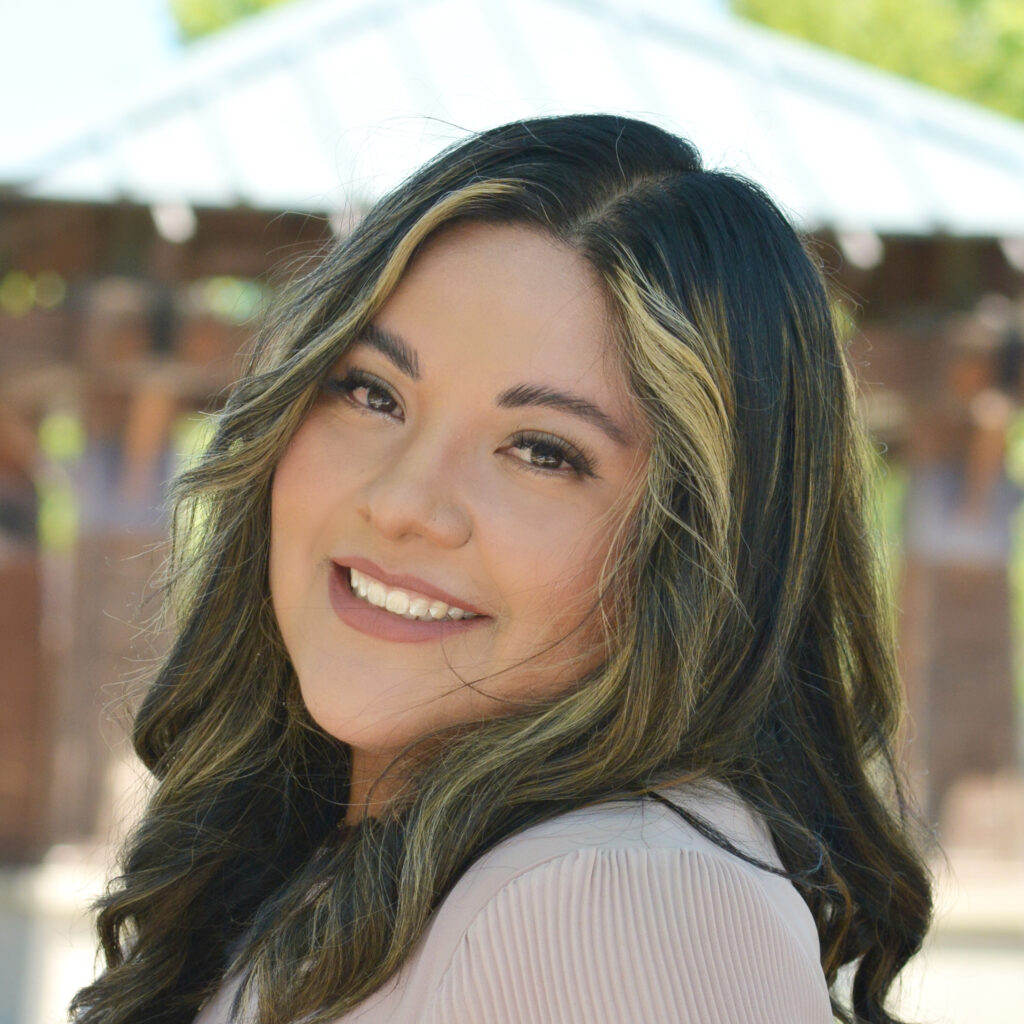
Nallely Ramirez was born in Healdsburg and grew up in Windsor. Since graduating from UC Santa Cruz, she has worked as a bilingual case worker with Legal Aid Sonoma County, helping survivors of domestic violence obtain needed services, compose and file necessary paperwork, and navigate the sometimes confusing court system—basically getting them to the stage of a hearing, at which point an attorney takes over their case.
“I think having that bilingual aspect to the work that we do changes a lot of lives,” says Nallely, who before joining Legal Aid had also assisted survivors of domestic violence at the YWCA and the Family Justice Center.
“Working with people in trauma, it’s something that I’ve been doing for some time now,” she explains. “I knew this was something I could do, something I liked doing, and it was something I wanted to expand on.”
Noting the importance of mental health support for the clients she worked with, she also confronted the dearth of accessible services available to them.
“That’s when it gets really hard. Where do you refer clients, without them having to pay? Or when it’s not a good fit, where else can you send a client?”
Nallely began looking around for programs through which she could develop her career to directly serve Sonoma County’s vulnerable Latinx population.
“Working with people in trauma, it’s something that I’ve been doing for some time now…I knew this was something I could do, something I liked doing, and it was something I wanted to expand on.”
She applied and was accepted to the three-year advanced degree in Marriage and Family Therapy at USF Santa Rosa. She then secured a full tuition scholarship from Healthcare Foundation’s Mental Health Talent Pipeline project to make it a reality. She starts her studies this fall.
“That’s why the Mental Health Talent Pipeline project scholarship is so important,” she says. “It’s providing this opportunity to continue working in the nonprofit sector to provide free services, without having to worry about paying back loans or having to worry about bills and things like that. Rather, I can pursue my education, and I can go right into working and providing these services that are really needed in this county.”
Nallely sees her career path as part of a much needed change in the culture around mental health.
“When I was growing up, mental health wasn’t something that was brought up with anybody, whether it was the school or my family, it just wasn’t something that was talked about,” she remembers. “Culturally, if you were anxious, it was, ‘Oh, you have nervios.’ That’s how you would say it in Spanish. ‘Oh, you’re just nervous.’”
“That’s always been something in the back of my mind,” she admits. “Now that I’m older, to be able to see how stigmatized mental health was, and the importance of access to mental health education—it really does make a difference in a lot of people’s lives.”

VIP Pre-Reception 6:00 – 7:00 PM
20th Anniversary Gala 7:00 – 10:00 PM
Monday, August 23 at 8:00 AM
LIVE with our gala online auction, featuring a selection of enticing offerings, including deluxe travel packages. Whether you are a sponsor, guest or online visitor, your participation supports our vision of eliminating health inequities in northern Sonoma County.
You can easily register for the online auction at bit.ly/HFAUCTION2021.
Just click GET STARTED at the top right to create your account!
We encourage you to register before August 23rd to be entered for a chance to win a magnum bottle of premium wine! Five names will be drawn.
Together, we can meet our gala fundraising goal in support of community health!

Related News + Stories
Invest in Our Community
Your support is vital to our collective vision of eliminating health inequities in northern Sonoma County.
Donate
